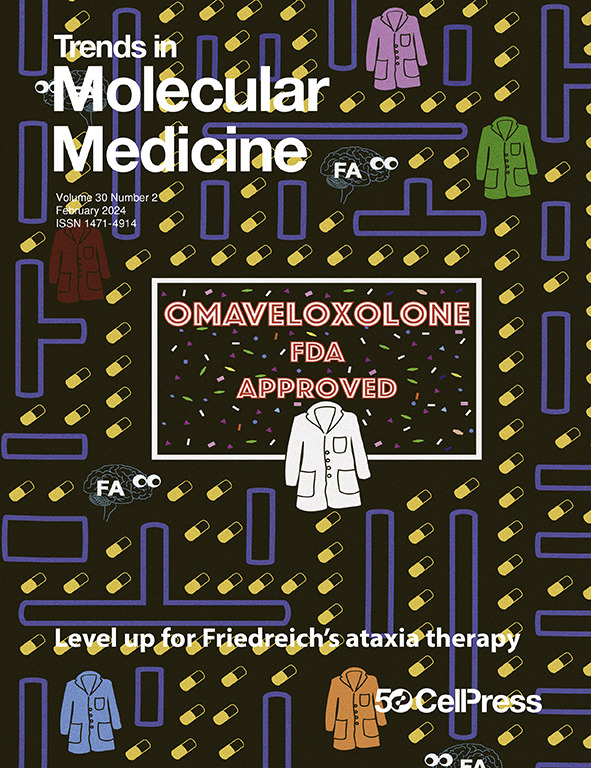巨噬细胞作为早产的治疗靶点。
IF 12.8
1区 医学
Q1 BIOCHEMISTRY & MOLECULAR BIOLOGY
引用次数: 0
摘要
尽管有越来越多的证据表明蜕膜巨噬细胞的作用,但人类分娩的开始仍然知之甚少。这些可能通过促进促炎状态触发分娩,从而调节黄体酮信号并削弱胎膜。针对巨噬细胞的临床前治疗工作显示出预防早产的希望,强调了它们在这一过程中的重要性。本文章由计算机程序翻译,如有差异,请以英文原文为准。
Decidual macrophages as therapeutic targets in preterm labour.
The initiation of labour in humans remains poorly understood, although there is mounting evidence for a role for decidual macrophages. These may trigger labour by promoting a proinflammatory state, thereby modulating progesterone signalling and weakening fetal membranes. Preclinical work targeting macrophages therapeutically shows promise in preventing preterm labour, underscoring their significance in this process.
求助全文
通过发布文献求助,成功后即可免费获取论文全文。
去求助
来源期刊

Trends in molecular medicine
医学-生化与分子生物学
CiteScore
24.60
自引率
0.00%
发文量
142
审稿时长
6-12 weeks
期刊介绍:
Trends in Molecular Medicine (TMM) aims to offer concise and contextualized perspectives on the latest research advancing biomedical science toward better diagnosis, treatment, and prevention of human diseases. It focuses on research at the intersection of basic biology and clinical research, covering new concepts in human biology and pathology with clear implications for diagnostics and therapy. TMM reviews bridge the gap between bench and bedside, discussing research from preclinical studies to patient-enrolled trials. The major themes include disease mechanisms, tools and technologies, diagnostics, and therapeutics, with a preference for articles relevant to multiple themes. TMM serves as a platform for discussion, pushing traditional boundaries and fostering collaboration between scientists and clinicians. The journal seeks to publish provocative and authoritative articles that are also accessible to a broad audience, inspiring new directions in molecular medicine to enhance human health.
 求助内容:
求助内容: 应助结果提醒方式:
应助结果提醒方式:


